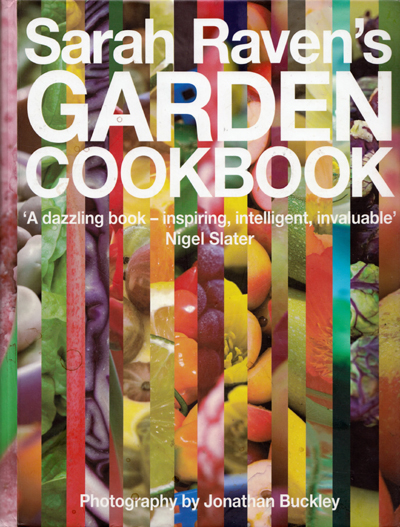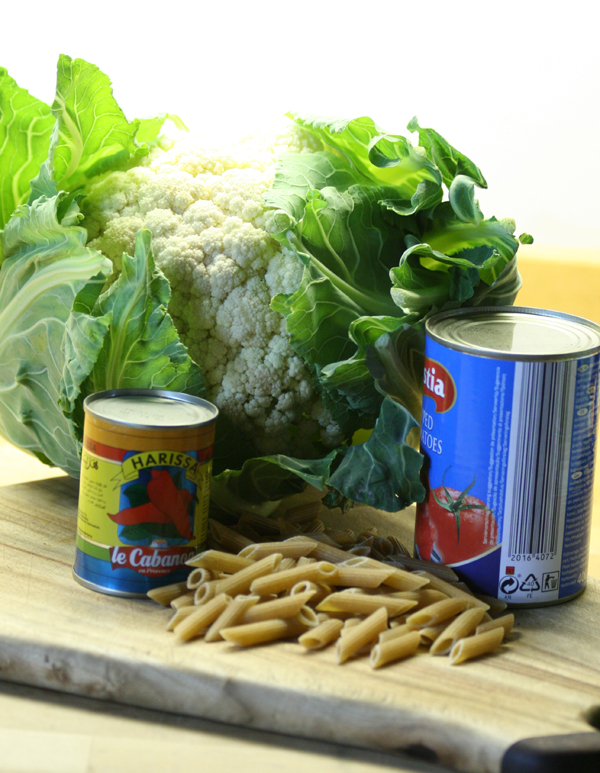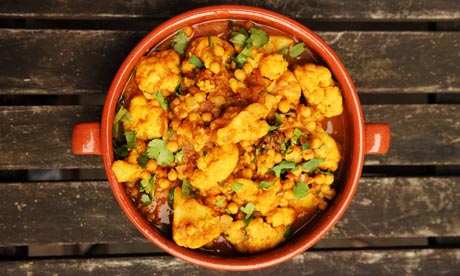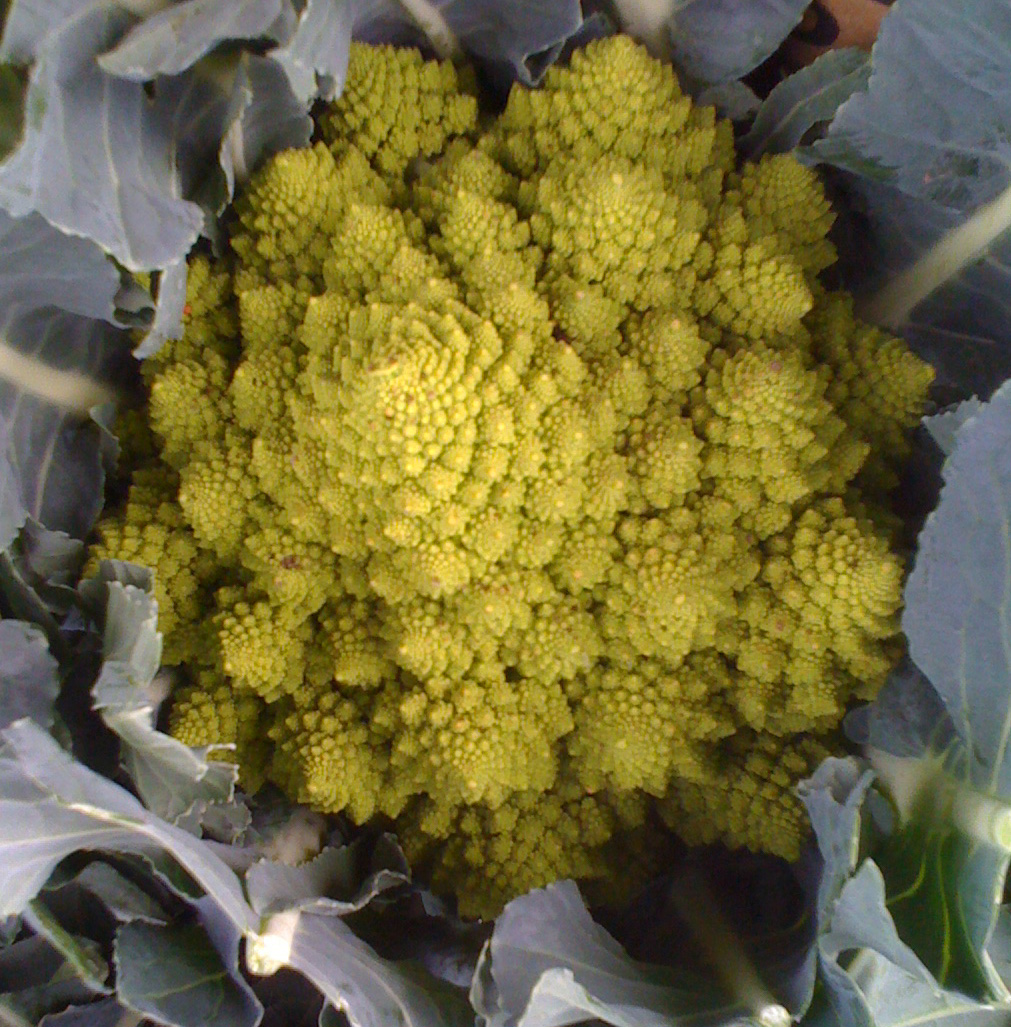
An Edwardian dish (great name!) that Sarah Raven says was included in her aunt Fortune Stanley’s 1974 cookery book, English Country House Cooking. Sarah reproduces it in her Garden Cookbook. She says that with a crunchy salad of bitter leaves – our own Camel CSA-grown salad leaves would work well – it’s perfect for a light main course.
Serves 4
Preparation and cooking: 40 minutes
Ingredients
1 large cauliflower
175g butter, plus a little more for the dish
3 tbsp flour
6 tbsp single cream
250g strong cheddar cheese
salt and black pepper
1 tbsp mustard
6 eggs, separated
Method
Preheat a moderate oven (180C/gas 4). Divide the cauliflower into chunks and steam it for 3-4 minutes. Put the cauliflower in the bottom of a buttered souffle dish.
Melt the butter, add the flour and stir over a gentle heat for 1-2 minutes. Add the cream and cheese. Season and add the mustard and cook for 3-4 minutes, stirring continuously until the mixture thickens to the consistency of double cream. Take off the heat and stir in the egg yolks.
Whisk the egg whites and fold in. Pour the souffle mixture over the cauliflower and bake in the preheated oven for about 15 minutes, until the top is browned and risen.

From Annie Bell’s Evergreen. She recommends ‘any squat and tubular pasta’ and says that both the cauliflower and the pasta should be ‘on the firm side. The sauce is richly flavoured and hot, and just coats the pasta and cauliflower. Parmesan would be out of place.’
Serves 4
Preparation and cooking: 15-20 minutes
Ingredients
400g cauliflower florets (1 large cauliflower)
3 garlic cloves, peeled
2 level tbsp tomato puree
1 tsp harissa
3 tbsp olive oil
450g tomatoes, peeled, seeded and chopped (or a tin of chopped tomatoes)
salt, pepper
225g penne
Method
Cut the cauliflower into 1cm florets. Finely chop the garlic cloves. Dilute the tomato puree with 3 tbsp of water and stir in the harissa. Take a deep frying pan and heat the olive oil. Cook the garlic until it gives off an aroma, then add the tomato solution, the chopped tomatoes and seasoning. Simmer the sauce for a couple of minutes. Add the cauliflower and cook, covered, for 7 minutes, stirring occasionally. It should remain on the firm side.
While the cauliflower is cooking, boil the pasta, leaving it firm to the bite. Drain it, though not too dry, and toss it with the cauliflower. Adjust the seasoning and serve.

One of Angela Hartnett’s ‘midweek suppers’ from the Guardian. She says the secret is not to over-cook the cauliflower and add it to the curry mix while it is still warm so it absorbs all the flavours. Eat on its own, with steamed rice, or cheat and buy some naan bread.
Serves 4-6
Preparation and cooking: about 15 minutes
Ingredients
1 whole cauliflower
3 medium onions
4 cloves of garlic
½ tsp chopped fresh ginger
2 tsp ground coriander
2 star aniseed
½ tsp ground chilli
4 curry leaves
2 tsp garam masala
2 tsp ground cumin
1 tin of chopped tomatoes
1 tin of chickpeas, drained
2 tbsp chopped fresh coriander
Method
Remove the stalks from the cauliflower and cut into large florets. Add the cauliflower to a pan of boiling water and cook for five minutes. When ready, drain and then place back in the pan. Cover so it stays warm.
While the cauliflower is cooking, cut the onions into small pieces. Squash the garlic with the back of a knife to make it easier to peel. Chop until nice and fine.
In a pan,add a touch of butter, plus the onion, garlic and ginger, and saute until golden brown. In the same pan, add the dried spices and cook for a further five minutes. Add the tin of tomatoes and chickpeas and stir well. Then add the cooked cauliflower. Top up with 100ml of cold water and bring to a simmer for five to 10 minutes until the cauliflower is cooked.
Finish by adding the chopped coriander. Serve on a warm plate.

This recipe from Sarah Raven’s Garden Cookbook is perfect for using the veg in this week’s boxes with the romanesco cauli making a good base. She calls the dish ‘the perfect quick-and-easy weekday supper’. Serve it with rice and chutney.
Serves 6
Preparation/cooking: about half an hour
Ingredients
1 onion, finely chopped
2 tbsp vegetable oil
1 tsp good curry powder
2 x 400ml tins of coconut milk
1 cauliflower, chopped
2 carrots, chopped
1 parsnip, chopped
2 good handfuls of chard or spinach, chopped
french beans (good, but not essential)
bunch of coriander, roughly chopped
salt and pepper
Method
Fry the onion in the oil gently until soft. Add the curry powder and fry again for another minute or two. Then add the coconut milk and vegetables, except the beans if you are using them. Season.
Cook for about 10 minutes, until the veg are tender but not soft. If using beans, add them a couple of minutes before the end. Take off the heat and add the coriander.
Don’t be put off by the long list of ingredients for this recipe from Hugh Fearnley-Whittingstall in The Guardian. He says: “This makes for a light, easy and tasty dinner with some rice and naan or chutney.”
This dish has a delicious nutty flavour and none of the pungency associated with this much-maligned vegetable. At home in St Mabyn I served it with grilled, spiced chicken and extra yogurt.
Serves 4
Preparation: 5-10 minutes
Cooking: 20 minutes
2 tbsp groundnut oil
2 small onions, peeled, halved and finely sliced
3 cloves garlic
1 green chilli, seeds and membrane removed, chopped
3cm piece fresh ginger, peeled and chopped
Salt and freshly ground pepper
1 tsp garam masala
½ tsp mustard seeds
½ tsp ground cumin
¼ tsp turmeric
3 cardamom pods, bashed
350g small potatoes, quartered
1 cauliflower, trimmed and broken into large florets
250g whole milk yoghurt
1½ tbsp tomato purée
1 small handful fresh coriander, tough stalks removed
1 small handful cashews or pistachios, toasted
Heat the oil in a large saucepan over a medium heat, then fry the onion until just golden. While the onion is cooking, pound the garlic, chilli and ginger with a pinch of salt until they form a paste. Add this to the pan and stir for a couple of minutes.
Tip in the rest of the spices and stir until the mustard seeds begin to pop. Add the potatoes and cauliflower, and fry, stirring frequently, for five minutes, so that the veg are well coated with the spice mixture. Pour in about 400ml water, bring to a simmer, cover and cook for 10-12 minutes, until the vegetables are tender.
In a bowl, whisk together the yoghurt, tomato purée and some of the hot cooking liquid. Remove the curry from the heat, stir in the yoghurt mixture, return the pan to the heat and warm through very gently. Stir in most of the coriander, adjust the seasoning and serve scattered with the remaining coriander and the toasted nuts.
Try these other cauliflower recipes: –
A fried cauliflower
Cauliflower with saffron, pinenuts and raisins
Cauliflower and three cheese comfort supper

Henrietta recommends this recipe from Sam and Sam Clark’s Moro cookbook. They say that the white cauliflower shows off the saffron’s colour beautifully and turns this “parochial vegetable into quite a glamorous one”.
Serves 4
Preparation: 10 minutes
Cooking: 30 minutes
Ingredients
1 medium cauliflower, broken into small florets (keep the smallest leaves)
3 tbsp olive oil
1 large Spanish onion, thinly sliced
50 strands saffron, infused in 4 tbsp boiling water
3 tbsp pinenuts, lightly toasted
75g raisins, soaked in warm water
sea salt and black pepper
Method
Bring a large saucepan of salted water to the boil. Add the cauliflower, put the lid on and bring to the boil again. Blanch the cauliflower for a minute then drain in a colander and set aside.
Heat the olive oil in a heavy saucepan until hot but not smoking then add the onion with a pinch of salt. Stir well, reduce the heat to low and cook very slowly for about 15-20 minutes until golden in colour and sweet in smell. Be sure to stir the onions every 5 minutes so they cook evenly and do not stick to the bottom of the pan. Remove from the heat, drain the onion and keep the oil.
Set the same saucepan over a high heat and add the olive oil back to the pan. When the oil is hot, add the cauliflower and leaves. Fry until the cauliflower begins to colour, then add the onion, the saffron-infused water, the pinenuts and drained raisins. Give everything a good toss and cook for 5 more minutes until the saffron water has more or less evaporated. Season with salt and pepper and serve.

This seasonal recipe for cauliflower served with a salsa verde is from Nigel Slater’s latest book, Tender. He deep fries the cauliflower but, if that’s a problem for you, shallow frying would probably work pretty well.
Serves 2 as a main course
Preparation: 15 minutes
Cooking: max 10 minutes
Ingredients
a medium cauliflower
sunflower or groundnut oil for deep-frying
3 tbsp gram flour
½ tsp paprika
For the salsa verde:
handful parsley leaves
6 bushy sprigs mint
handful basil leaves
2 cloves garlic, crushed
1 tbsp Dijon mustard
2 tbsp capers, rinsed
6 tbsp olive oil
2 tbsp lemon juice
Method
Break the cauliflower into florets. Boil in deep, salted water for a couple of minutes (a little longer if you can only shallow fry), then drain thoroughly.
To make the sauce, chop the herbs quite finely, then stir in the garlic, mustard and capers. Pour in the olive oil slowly, beating with a fork. Stir in the lemon juice and season with sea salt and black pepper. Be generous with the seasoning, tasting as you go. The sauce should be bright tasting and piquant.
Get the oil hot in a deep pan. Toss the cauliflower with the gram flour, a little salt and pepper and the paprika. When the cauliflower is coated, fry in the hot oil until crisp – a matter of three or four minutes or so. Drain on kitchen paper before serving with the sauce.


